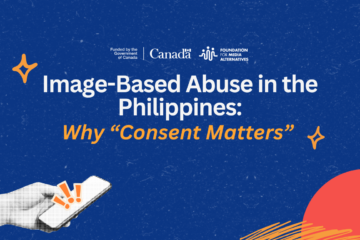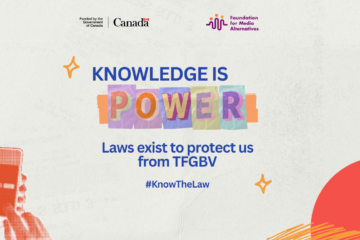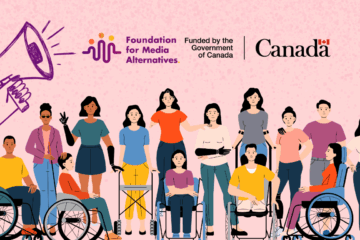What to do if you’re filmed without consent
We live in a culture that thrives on visibility. Photos, livestreams, Reels, and TikToks are part of daily life – documenting joy, creativity, protest, even injustice. But amid this constant documentation, consent has become an afterthought. When someone films you without your permission, especially in a way that is sexualized, mocking, or invasive, it’s not “content.” It’s violence as it’s a breach of your dignity and autonomy.
Technology-facilitated gender-based violence (TFGBV) refers to any form of harm carried out using digital tools such as phones, platforms, or surveillance technology against individuals based on their gender, sexuality, or expression. Non-consensual filming is one of its most common and insidious forms.
TFGBV thrives in the overlapping contexts of patriarchy, platform capitalism, and state neglect. Victims are often told to “just ignore it” and blamed for “putting themselves out there.” But feminist frameworks insist: the right to appear in public does not cancel out the right to control your image and boundaries.
While laws often hinge on “expectation of privacy,” feminist analyses go deeper. The violation isn’t just legal, it’s relational and social. What matters is how power is being used, and who bears the cost of exposure.
Being filmed without your consent becomes an act of violence when it is sexualized (such as in upskirting or creepshots), used to harass, mock, or shame, shared without permission, especially to large or hostile audiences, inflicts psychological harm or reputational damage, or is rooted in racialized, gendered, or transphobic power dynamics.
In the Philippines, several laws offer protection against non-consensual filming. While gaps remain, victims can peruse these legislations to pursue justice:
RA 9995 – Anti-Photo and Video Voyeurism Act (2009)
- Prohibits the recording, reproduction, and distribution of images showing private parts or intimate acts without consent.
- Applies to both physical recordings and online uploads.
- Penalty: Imprisonment and/or fines.
RA 10175 – Cybercrime Prevention Act (2012)
- Criminalizes various online offenses, including photo and video voyeurism, identity theft, and cyber harassment.
- Includes enhanced penalties if the act was committed using technology.
RA 11313 – Safe Spaces Act (2019)
- Also known as the Bawal Bastos Law.
- Expands the definition of sexual harassment to include online gender-based violence.
- Covers unwanted sexual advances, misogynistic content, and invasive media sharing in digital spaces.
Many cases still go unreported or unprosecuted due to lack of enforcement, stigma, or fear of retaliation. That’s why community support, survivor-centered processes, and digital literacy are just as crucial as legal remedies.
In light of the growing prevalence of TFGBV, public surveillance, and viral culture, here’s what you should do if you’re being filmed without your permission.

Visibility must never come at the cost of vulnerability. A feminist approach to digital rights reminds us that the problem isn’t the presence of the camera, but how people wield it to power over others. We need not just individual safety tips, but collective strategies for resisting surveillance, shame, and exploitation.If you’ve been filmed without your consent, know this: you did not ask for it, you are not overreacting, and you deserve safety, dignity, and support. You are not alone, and you have every right to speak up and say, “That’s not okay. I did not consent.”
This project is being implemented by the Foundation for Media Alternatives, with the support of the Canada Fund for Local Initiatives.



0 Comments